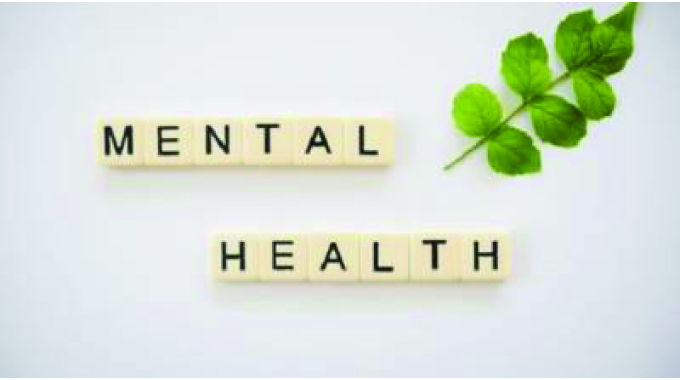
The Sunday News

Kahle Counselling Hub
MENTAL health is defined as a state of mental well-being that enables people to cope with the day-to-day demands of life. A healthy state of mind helps one to realise their capabilities, learn well, work well and be able to contribute meaningfully to their community.
It is an important component of health and well-being that supports our individual and collective abilities to make decisions, build relationships and shape the world we live in. It is a basic human right and it is fundamental to personal, community and socio-economic development.
1. Women and mental health
Women’s mental health is a critical topic and understanding the unique challenges faced by women is necessary. Here are some key issues affecting women’s mental well-being:
Depression: Depression is more common in women than men, mainly because of hormonal changes during pregnancy, after child birth, menopause which can contribute to symptoms of depression. In addition, socio-cultural factors including sexual harassment, submissive domestic roles, lack of social power and gender-biased prejudices.
Anxiety: According to research, women are twice as likely as men to experience anxiety. This is as a result of socio-cultural imbalances, life transitions (such as pregnancy and motherhood), as well as external stressors which contribute to anxiety in women.
Trauma: Experiences like violence from abusive relationships, financial problems and poverty impact women’s mental health too. These traumatic experiences also lead to anxiety, depression and other mental health challenges.
Eating Disorders: Societal pressures relating to the body image often contribute to the prevalence in eating disorders among women. There is so much pressure in trying to maintain an attractive figure, a standard that has been set by media and modelled by celebrities and influential people in society.
Suicide: Women are more prone to suicide as a result of depression and anxiety which increase the risk of suicide. It’s critical to recognise warning signs and provide support.
Substance Use Disorders: Substance misuse affects both genders, but women face unique challenges due to biological differences and societal expectations.
Disparities in Health Care: Despite living longer than men on average, women spend 25 percent more of their lives in poor health and may encounter inequalities in accessing mental health care.
2. How are women responding to therapy?
In recent years, with the advent of Covid-19, there has been an increase in mental health awareness and many people are now prioritizing their health and well-being. The stigma surrounding mental health is also decreasing slowly as people begin to appreciate the importance of keeping a healthy state of mind.
Women are more willing to seek therapy as compared to men who would normally turn to outlets such as alcohol and drug use, while women prefer to talk about their feelings.
Women tend to have better social networks and find it easier to confide in their family and friends. This makes them more likely to seek help from professional therapists and counsellors.
3. Benefits of counselling
Women face unique challenges throughout their lives which can be addressed in therapy. Some of the common women’s issues include managing stress, dealing with relationship issues, navigating life transitions, coping with fertility concerns and handling menopause. Counselling then empowers women to find solutions to their problems as well as healthy coping styles.
Counselling also helps women gain some understanding into their relationship dynamics, teaches them how to communicate effectively, establish healthy boundaries, as well as develop strategies for resolving conflicts.
In motherhood, counselling can address concerns like parenting challenges, coping with postpartum depression, anxiety around raising children and navigating the balance between work and family life.
In therapy, women can address the thoughts, feelings and behaviours that contribute to their food and body image issues and work to develop healthier coping mechanisms. This may involve discussions about societal beauty standards, self-esteem and self-acceptance.
4. Role of a counsellor in women facing mental health challenges
Counselling provides a safe space for addressing concerns with empathy, expertise and understanding. Women are helped through the turmoil of their emotions, relationships and promote personal growth.
Women experiencing mental health disorders such as depression, anxiety or Post-Traumatic Stress Disorder (PTSD) also benefit from counselling. They are helped to better understand their mental health, develop coping strategies and explore the underlying causes of their symptoms.
Women are better supported in their journey towards emotional well-being and resilience, by addressing the effects of discrimination, harassment and violence through counselling. They are empowered with basic social skills to navigate their experiences and overcome obstacles.
Counselling must be offered by professionally trained and licensed counsellors in an environment that is non judgemental, empathetically and confidentiality is observed.



